My name is Justyna Bielenda. I am a graduate of the Master’s degree in Psychology at the Jagiellonian University in Krakow. I completed my specialisation in Sport Psychology at the Academy of Physical Education in Krakow. My authority and mentor in training to become a sport psychologist was Professor Jan Blecharz – former psychologist of Adam Małysz. I had the opportunity to work with him as an academic lecturer, conducting exercises with students.
The target group I work with online is athletes from the age of 11, in recreational and competitive sport, coaches and parents of athletes.
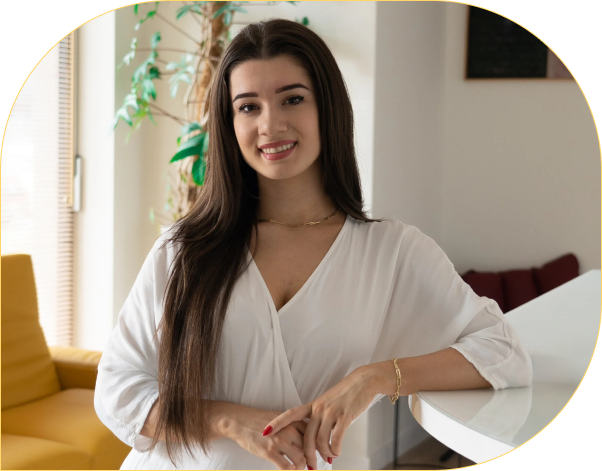
I gained experience as a psychologist working in primary and secondary schools and in summer camps, where I carried out workshops for children and adolescents. As a sports psychologist, I have cooperated with such clubs as Stal Rzeszów and Resovia Rzeszów, where I regularly provided individual mental trainings with athletes from various disciplines (football, figure skating, dance, acrobatics, gymnastics, athletics, horse riding). I am constantly expanding my knowledge of sport psychology by attending numerous training courses and conferences.
I am also an athlete. I trained ballroom dancing for 10 years, gaining great achievements. Sport has shaped my character and equipped me with many useful skills. Because my love for sport was so strong, I could not leave it forever. So I decided to combine my passion with science – and that’s how I became a sports psychologist! This makes the athletes I work with trust me more and makes me more credible in their eyes. Because I have been through challenges and difficulties in sport myself many times, I understand my clients like no one else and it is easier for me to adopt their perspective.
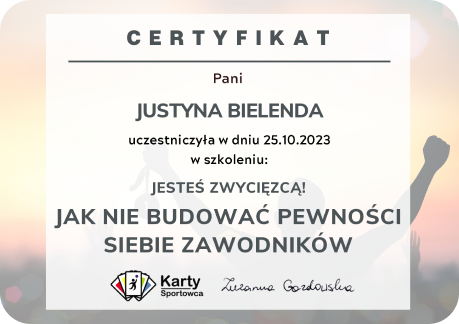
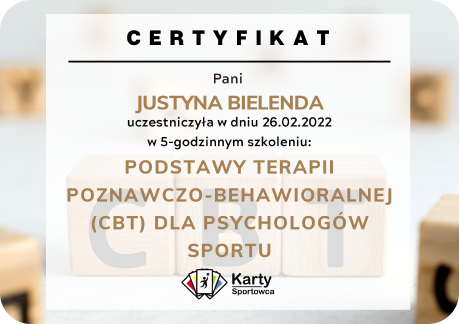
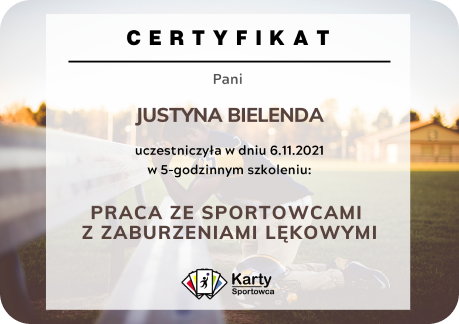
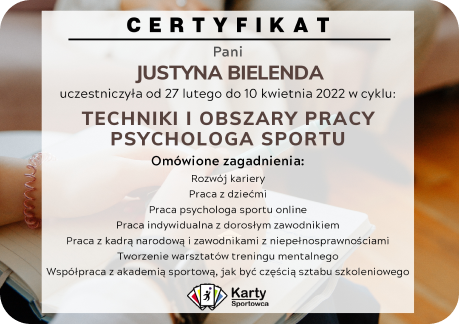
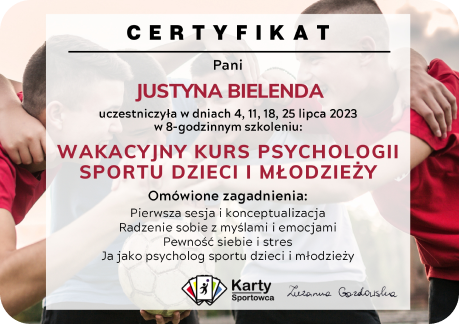
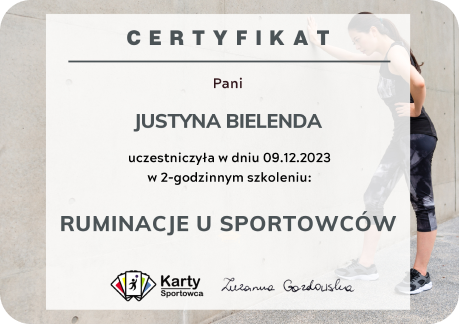
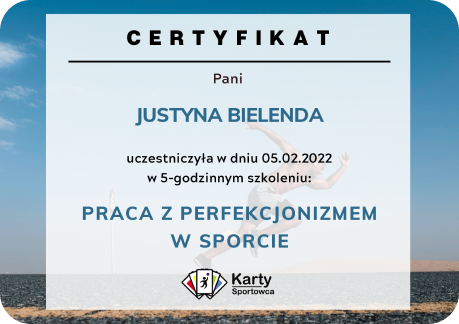
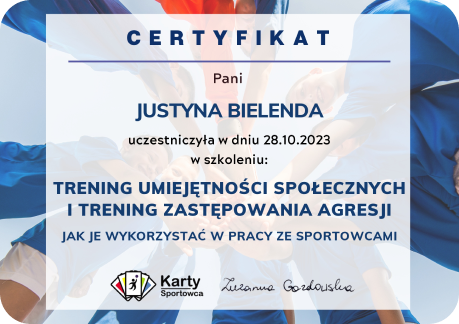
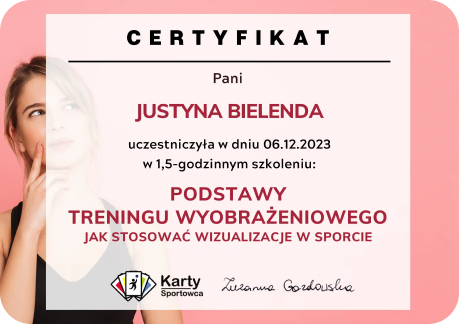
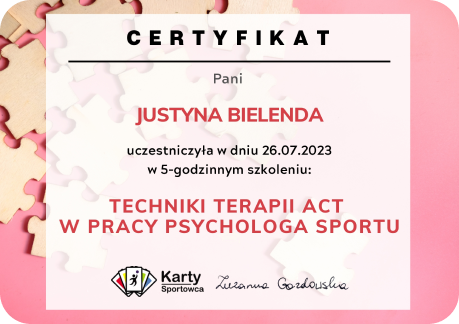
The first session serves to identify the client’s needs and has a diagnostic character. The aim of the meeting is to get to know the individual better, to understand the difficulties he or she is facing and to start the data collection stage with questionnaires and an interview.
At later stages, there is a joint identification of the aims of the collaboration, development of a programme of practice and work on specific issues. The whole process is confidential – everything I discuss with the client remains between us.
The duration of cooperation is a very individual matter. Depending on the client’s needs and goals, it can be short or long-term. However, remember that in order to achieve the intended effects of the mental work, you need to be patient and take your time.
As soon as you feel the need to do so. It is assumed that the best time to start working with a sports psychologist is between seasons, when there is much more time for mental training. This is when it is easier to draw conclusions from the previous season and set goals and objectives for the upcoming one. However, let’s remember that our inner self knows best when we need someone’s support and help. Let’s not underestimate it!
The answer to this question can be best sought in the achievements of our outstanding Polish athletes. For example, Iga Świątek, who openly says that it is, among other things, thanks to mental work with a sports psychologist that she achieves world successes.
Let’s remember that mental preparation is just as important as physical one and essential for success in sport. In the decisive moments of competition, it is the psyche that plays a key role. When our body is no longer able to cope “physically”, it is worth focusing on the reserves that lie in the head.
Yes. Paying for the session in advance makes it easier to ‘keep an eye on the payment’, and it is also a great motivation for the clients of giving the opportunity to help their needs and connect with me, instead of passing up such an opportunity. Remember, just deciding that you want to make a change is already the first step forward.